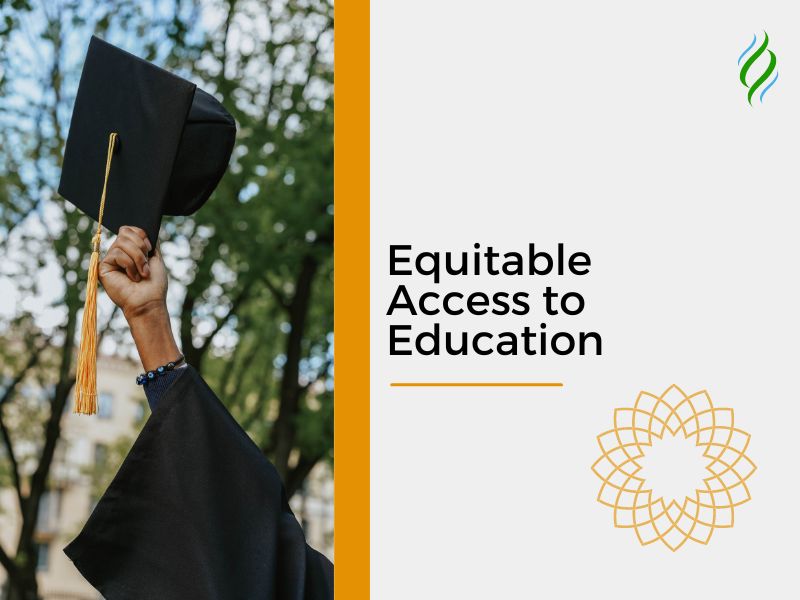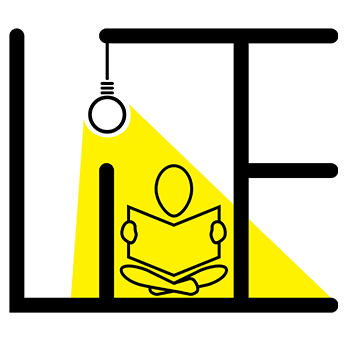Education stands as a beacon of hope and progress, illuminating the path towards a brighter future for individuals and society alike. It empowers minds, fosters critical thinking, and nurtures creativity, shaping individuals into informed and engaged citizens. However, the journey towards education is not uniform for all. Inequities persist, limiting access to quality education for millions around the globe. Promoting equitable access to education becomes a moral and societal imperative, transcending borders and cultures. By breaking down barriers and creating an inclusive learning environment, we lay the foundation for a more just and prosperous world. This article delves into the significance of equitable access to education, shedding light on the challenges that hinder universal education and exploring the profound impact it can have on individuals, communities, and global society.
Bridging Socioeconomic Barriers
Bridging socioeconomic barriers is a crucial step in ensuring equitable access to education for all. Socioeconomic status can often become a formidable obstacle, preventing many promising students from pursuing their educational dreams. In low-income families, the financial burden of educational expenses, including books, uniforms, transportation, and school fees, can be overwhelming. This disparity can lead to a vicious cycle of limited opportunities and hinder the overall progress of marginalized communities. To counter these challenges, targeted financial support, scholarships, and subsidies can be introduced to provide much-needed assistance to underprivileged students. By alleviating the financial burden, these initiatives enable deserving students to access quality education and break free from the cycle of poverty, ultimately creating a more inclusive and equitable society.
Empowering Girls and Women
Empowering girls and women is a vital component of promoting equitable access to education. In various parts of the world, cultural norms and discriminatory practices often hinder girls and women from receiving proper education. They may face early marriages, restricted mobility, and limited opportunities to pursue their academic aspirations. These barriers perpetuate gender inequality and impede the progress of societies as a whole. To address this issue, gender-responsive policies and awareness programs are essential. By advocating for girls’ education, providing safe learning environments, and challenging traditional norms, we can create an environment where girls and women have equal access to education and are empowered to shape their own destinies. Ensuring that girls and women receive quality education not only benefits them individually but also strengthens communities and promotes social and economic development on a broader scale.
Embracing Inclusive Learning Environments
Embracing inclusive learning environments is essential for promoting equitable access to education. Inclusive education goes beyond simply providing education to all students; it strives to create an environment where learners of diverse backgrounds, abilities, and learning styles can thrive. By recognizing and accommodating individual needs, inclusive learning environments ensure that every student feels valued and supported. This approach involves providing special education services and support to students with disabilities, as well as embracing universal design principles to make learning accessible to all. Inclusive education fosters a sense of belonging and community, where every student can fully participate and contribute. By removing barriers and promoting a culture of acceptance and understanding, inclusive learning environments play a significant role in breaking down the walls that hinder equitable access to education.
Harnessing Technology for Distance Learning
Harnessing technology for distance learning has revolutionized the way education is delivered and accessed. Digital learning platforms, online courses, and remote learning tools have become powerful tools to overcome geographical barriers and extend educational opportunities to individuals in remote or underserved areas. With the advent of technology, learners can access quality education from the comfort of their homes, eliminating the need for physical proximity to traditional classrooms. This has democratized education and created a more inclusive learning landscape, allowing students from diverse backgrounds to pursue their academic aspirations regardless of their location. Moreover, technology enables flexible learning schedules, catering to the needs of working professionals, caregivers, or those with other responsibilities. By leveraging technology strategically, we can bridge the gap in equitable access to education and ensure that learning is truly borderless.
Supporting Indigenous and Minority Communities
Supporting indigenous and minority communities in accessing education is essential to promote equitable access to learning opportunities. These communities often encounter distinct challenges, such as cultural differences, language barriers, and historical marginalization, which hinder their access to quality education. To address these barriers, tailored educational programs are crucial. These programs should be designed to respect and preserve their cultural heritage, incorporating mother tongue-based learning methods to foster a deeper understanding and connection to the curriculum. Engaging community members as educators and mentors creates a sense of trust and cultural relevance, further empowering these communities to actively participate and excel in their educational journey. By providing inclusive and culturally sensitive educational initiatives, we can foster a more equitable and supportive learning environment for all, irrespective of their cultural background or social standing.
Strengthening Infrastructure and Resources
Strengthening educational infrastructure and resources is a crucial step in promoting equitable access to education. In many rural areas and underserved communities, schools often face significant challenges in providing basic amenities necessary for effective learning. These challenges can include a lack of electricity, clean water, and functional libraries, which hinder students’ ability to fully engage in their studies. To bridge these gaps, it is essential to invest in upgrading school facilities and providing modern teaching tools. Additionally, ensuring an adequate number of qualified teaching staff is essential for delivering quality education. By addressing these infrastructure and resource gaps, we can create inclusive and conducive learning environments that cater to the diverse needs of all learners, irrespective of their geographical location or socio-economic background.
Fostering Public-Private Partnerships
Fostering public-private partnerships is a strategic approach to promoting equitable education by leveraging the collective strengths of various stakeholders. By collaborating with governments, non-governmental organizations (NGOs), private organizations, and local communities, we can create a powerful synergy to address educational gaps and drive meaningful change in the education sector. Public-private partnerships bring together diverse expertise, resources, and knowledge, enabling the pooling of efforts and ideas to tackle complex challenges. Through these collaborations, innovative solutions can be developed, and investments can be mobilized to improve educational infrastructure, access to quality teaching materials, and teacher training programs. Moreover, such partnerships facilitate the implementation of targeted initiatives that cater to the specific needs of different communities, ensuring that no one is left behind in the journey towards equitable education.
Conclusion
In conclusion, promoting equitable access to education is not only about ensuring equal opportunities for all but also about upholding the principles of justice and inclusivity in our society. It is a collective responsibility to break the shackles of poverty, discrimination, and social barriers that hinder individuals from accessing quality education. By fostering a culture of respect, diversity, and empathy, we create inclusive learning environments where every learner can thrive and reach their full potential. Embracing technology, community engagement, and public-private partnerships, we can bridge gaps and extend the reach of education to the farthest corners of our nation. As we empower girls and women, support indigenous and minority communities, and strengthen educational infrastructure, we take significant strides towards building a brighter, more equitable future for generations to come. Let us unite in our commitment to equitable education, for it is the key to unlocking the boundless potential of every individual and realizing a truly inclusive and prosperous society.

